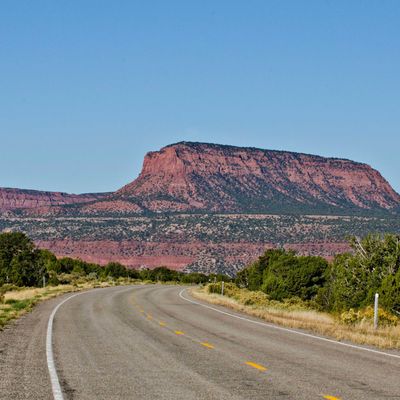
On Tuesday, President Obama created two new national monuments out of sacred tribal lands in Utah and large tracts of desert in Nevada. The move, which puts an end to years of wrangling over the spaces, seems likely to further inflame passions in the West, where opinions over the federal government’s management of public lands has become something of a flashpoint.
Obama’s creation of Bears Ears National Monument in southeastern Utah is especially history-making. The federal government already owns about two thirds of the land in Utah, and the new monument will put another 1.35 million acres under its care.
Obama designated the monument at the behest of five Native American tribes with historic ties to the area. The land includes sacred sites, along with well-preserved Pueblo settlements that date back more than 3,500 years. For the first time in the country’s history, Native American tribes will share the responsibility of managing the lands with the government: the Hopi, Navajo, Uintah and Ouray Ute, Ute Mountain Ute, and Pueblo of Zuni will work together to oversee the massive monument.
Most Utah politicians are strongly against Obama’s move. Republicans in the state have struggled for more than three years to draft a bill that would both protect the land and allow for development. Upon hearing about the monument, Utah’s Republican congressman Jason Chaffetz told the Washington Post that he was “outraged” and called the designation a “slap in the face.”
“It does not have the support of the Governor, a single member of the state’s Congressional delegation, nor any local elected officials or state legislators who represent the area,” he said.
Obama’s new monument in Nevada is even more controversial. The new Gold Butte National Monument — which is also home to important Native American sites, including rock paintings — uses land that has been at the center of a conflict between an ever-expanding Las Vegas and conservationists for more than a decade.
Disagreement over Nevada’s federal lands is what brought the Bundy family — whose ranch is just next to the new Gold Butte National Monument — into the public eye in 2014, leading to a widely publicized armed standoff with the Bureau of Land Management. Some of their followers are still awaiting trial for their role in the dispute.
While some see the monuments as examples of federal overreach, Obama clearly believes his actions will help solidify his legacy as a conservationist president in the model of Teddy Roosevelt. Tuesday’s announcements mark the 28th and 29th times that Obama has used his executive authority to designate new monuments, extending federal protection to a further 548 million acres of land and water during his presidency.
In a statement, Obama said his decision would “protect some of our country’s most important cultural treasures, including abundant rock art, archaeological sites, and lands considered sacred by Native American tribes. Today’s actions will help protect this cultural legacy and will ensure that future generations are able to enjoy and appreciate these scenic and historic landscapes.”
Politicians have vowed to fight to repeal the actions once Donald Trump is president, and Trump’s Interior secretary pick, Ryan Zinke, is reportedly in favor of changing the law — the 1906 Antiquities Act — that allows the president to designate monuments without the approval of congress.
Utah Senator Orrin Hatch had strong words for the president on Wednesday, calling his move an “attack on an entire way of life” and an “astonishing and egregious abuse of executive power.”
“In the next Congress under President Trump,” he warned, “I will do everything in my power to reverse this travesty.”
Meanwhile, the vice-president of government affairs for the National Parks Conservation Association, Kristen Brengel, hopes that the next administration will leave the new monuments and the existing law alone. “It’s a wonderful law that allows the president to make quick decisions to protect areas when they need it,” Brengel said in an interview. “Why would we want to destroy that?”





























